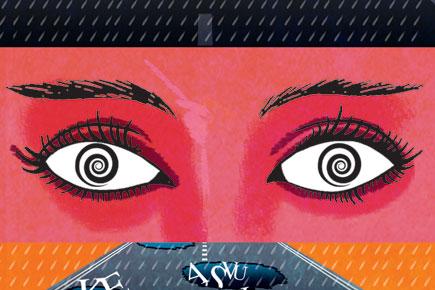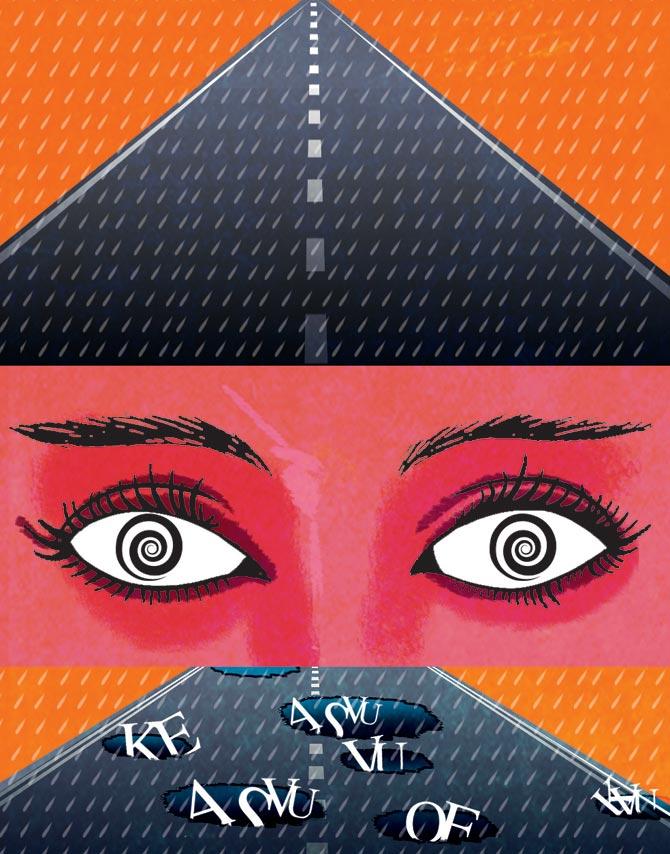Alzheimer's disease does many things to the human brain. Most of all it hollows out that most human of traits — the ability to make connections


Illustration/Ravi Jadhav
 Alzheimer's disease does many things to the human brain. Most of all it hollows out that most human of traits — the ability to make connections. To connect the past to the present, a name to a face, a meaning to a word. In this way, those suffering from the disease lose the ability to make sense of their world. Context dissolves and an isolation occurs. Suspicion and paranoia can start shaping the person's emotional landscape, as, for instance, they forget where they have kept something and suspect others of having stolen it. Relationships cease to have meaning.
Alzheimer's disease does many things to the human brain. Most of all it hollows out that most human of traits — the ability to make connections. To connect the past to the present, a name to a face, a meaning to a word. In this way, those suffering from the disease lose the ability to make sense of their world. Context dissolves and an isolation occurs. Suspicion and paranoia can start shaping the person's emotional landscape, as, for instance, they forget where they have kept something and suspect others of having stolen it. Relationships cease to have meaning.
Perhaps this might be the most compassionate way to understand the state of the city's municipal administration right now. I don't know about you, but I need all the compassion I can muster in the face of inexplicable callousness even as I cope with the million mosquitoes now that is the city's air.
Each pre-monsoon begins with the declaration of preparedness in the monsoon, and as children at the mercy of abusive parents, each time we feel, this time the loving moment has arrived.
And, it's entirely possible, isn't it, that the municipality fixed the potholes, and, of course all the waterlogging in the city, but simply forgot it has done so? What else can explain the persecution of RJ Malishka for her satirical and excellent song on the pothole situation, if not suspicion and paranoia? They fixed the potholes but now suspect Malishka of aiding and abetting dengue.
Perhaps the ultimate perversion of meaning, which beggars explanation, is in the case of Jagruti Hogale, a biker who died because of potholes on the Mumbai-Ahmedabad highway last week. Preliminary investigations indicate that Ms Hogale perhaps miscalculated the depth of the pothole she went into, causing her to fall over and be crushed to death.
No regret or sadness is forthcoming from the administration. No moment of shock leading to sobriety and soul-searching (what soul, we might wonder, anyway). Instead, in a moment of stellar farce, first the authorities blamed the rain generally, yaniki God, and now the police have lodged a case against the dead woman herself, for negligent driving. It's unclear how they mean to bring her to book. But perhaps it doesn't matter that life has been severed from being, when in their brains words have been severed from meaning.
It is pointless to say that had the administration cared to fix the roads, this accident (and many others) might have been avoided. This requires making connections, a healthier psyche than the culture can currently claim.
After all, the death of people has long ceased to have meaning. We are quick to classify a death as an ideological occurrence, not a human one. The debate which then ensues becomes a battle of ideologies, not a reflection on human life and the kind of society we want, as citizens to sustain it.
Death is always the fault of the person who died in contemporary discourse — he should not have bought meat, she should not have answered, or ridden a bike, or been there, or been who they were. Our systems and us reflect each other in this spiteful perversion of connections.
What can cure this breakdown of meanings? What jaadu ki jhappi can we send out to those around us, indeed, to ourselves?
Paromita Vohra is an award-winning Mumbai-based filmmaker, writer and curator working with fiction and non-fiction. Reach her at www.parodevipictures.com
 Subscribe today by clicking the link and stay updated with the latest news!" Click here!
Subscribe today by clicking the link and stay updated with the latest news!" Click here!









